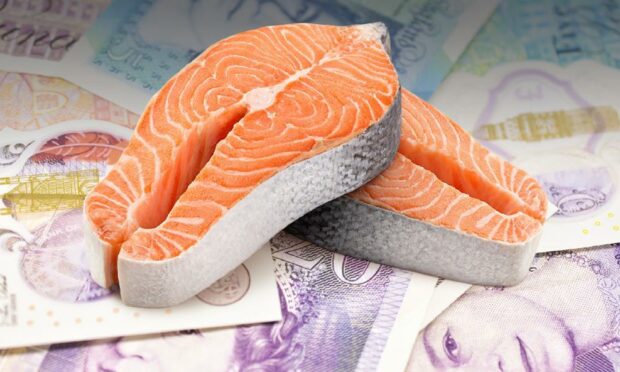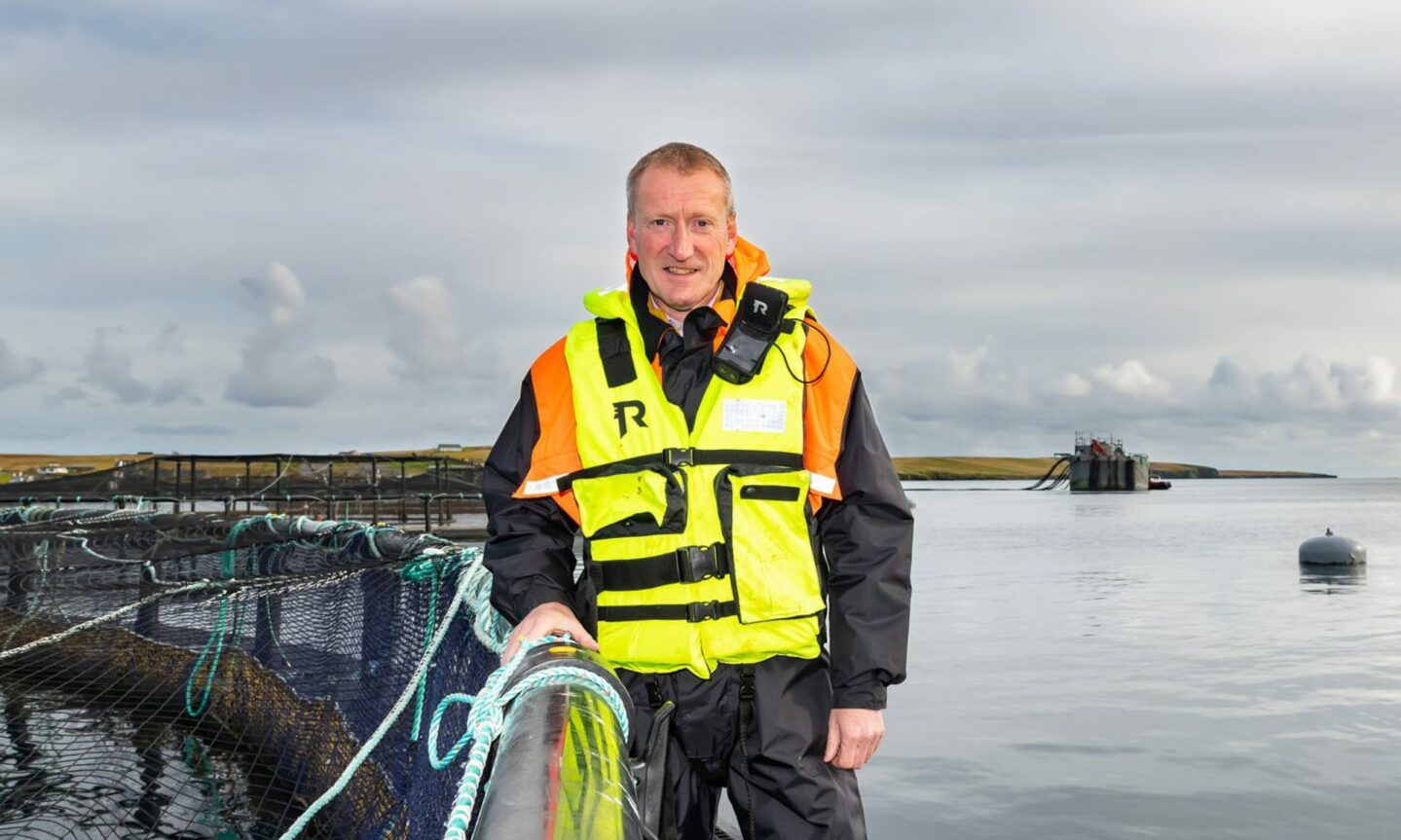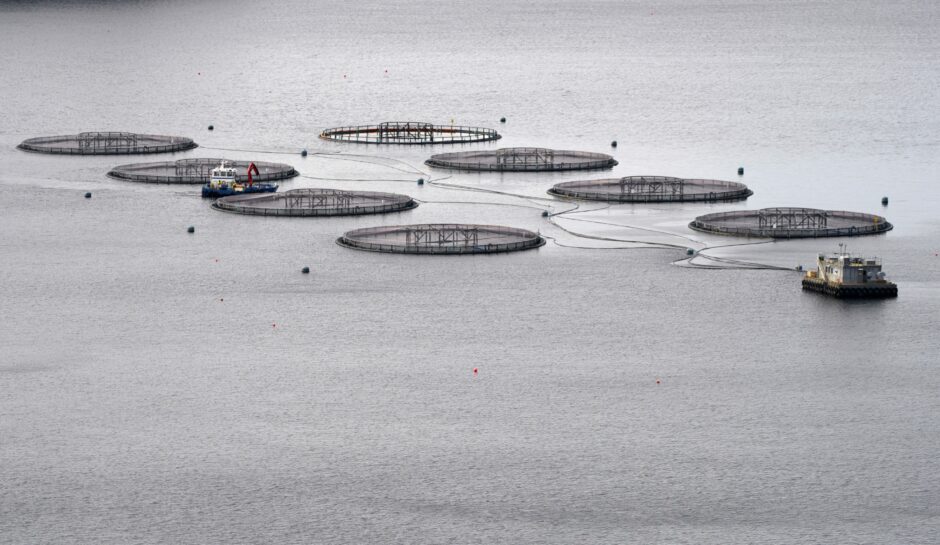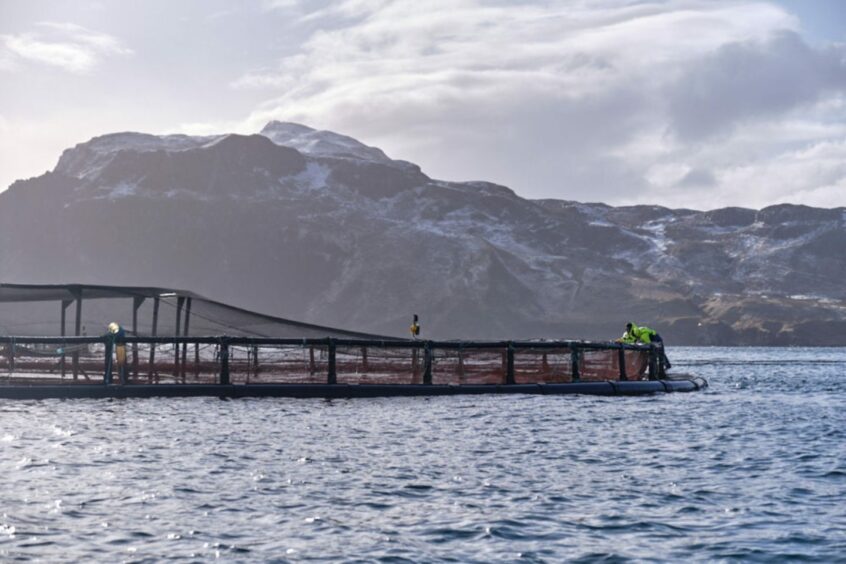Salmon Scotland chief executive Tavish Scott has lashed out over an “arbitrary and totally unjustified” decision to almost double rents on fish farms.
The former leader of the Scottish Liberal Democrats said the move by Crown Estate Scotland (CES) to hike up prices may hurt the industry’s competitiveness internationally.
And he accused CES of seeing the sector as “a cash cow to be exploited”.
In a letter to Rural Affairs and Islands Secretary Mairi Gougeon, Mr Scott highlighted the “disappointment and dissatisfaction ” of industry body Salmon Scotland.
He criticised CES for calling opposition to the rent increases “emotional positions” reflecting “heartfelt concerns”.
The former Shetland MSP added: “The opposition to the changes is based on fact and an appreciation of the wider policy and economic landscape across Scotland.
“We are disappointed by the manner in which CES seek to dismiss our sector.
Mr Scott also attacked CES for implying the number of responses to a consultation on its proposals, including one from Salmon Scotland, representing the industry, was low.
“Again, I am very disappointed CES would seek to dismiss our industry in this way,” he said.
South of Scotland Enterprise chairman Professor Russel Griggs was appointed by CES to review how the Scottish aquaculture industry is regulated.
The review aims to make legislation governing the sector the most transparent in the world.
“CES presumably now see salmon like offshore wind – a cash cow to be exploited.
Tavish Scott, CEO, Salmon Scotland.
Mr Scott said: “CES has implemented changes to our costings which will have a substantial impact on our business without any reference to the imminent publication of the Griggs Review.
“Griggs, in discussion with our companies, has advocated a holistic approach to policy-making that considers the wider consequences and implications of any change.
“CES’ approach ignores this wider context.”
Fish farmers pay rent to CES for their lease of the seabed.
According to Salmon Scotland, the proposed changes include rent rises of 95% across the sector.
CES also plans to remove the Outer Island Discount, which supports fish farming in areas where there are higher costs of living, labour and logistics, the trade body said.
In addition, Salmon Scotland revealed “significant” new charges for nursery farms and sites where there is no production.
It is thought the changes may add up to a trebling of rent costs for some companies.
‘Very disappointed’
Mr Scott said: “Scotland’s salmon sector, employing 2,500 direct jobs in coastal and island communities is very disappointed by Crown Estate Scotland’s arbitrary and totally unjustified decision to almost double rents on salmon farms.
“CES presumably now see salmon like offshore wind – a cash cow to be exploited.
“We are today asking Cabinet Secretary Mairi Gougeon to halt this rise until the independent review of regulation is published.”
Where’s the benefit?
He added: “Our members have paid more than £20 million into CES over the last five years – a charge which is set to almost double under this new framework.
“Scotland’s salmon farmers would be more likely to accept such a steep increase if they could see the benefit in terms of local investment of these charges.
“But, despite requests, CES have failed to give any indication as to how or even if this extra money will actually be used to help local people in the areas where it is raised.”
To highlight the sector’s smaller impact in Scottish waters, compared to offshore wind, Salmon Scotland said it accounted for just 0.02% of the area covered by the 17 projects across more than 2,700sq miles that secured options in the ScotWind leasing round.
Salmon firm lost more than £11m-worth of fish after Faroese takeover
The group added: “Over 2,500 of our farmers are located around the west coast, and Highlands and Islands of Scotland – some of the most remote areas of the country, providing jobs and economic activity all year round.
“Our suppliers include over 3,600 companies located throughout Scotland.
“Being part of the fabric of the Scottish economy is something we are very proud of. It has been key to making us Scotland’s most valuable food export.
International reputation
“It is that success which means we are passionate about developing our businesses in a sustainable and profitable manner.
“It also means that we compete on an international basis. It is, therefore, important that, after a number of decades of building our reputation and product, we are not exploited with extortionate charges which reduce our competitiveness internationally.”
CES is accountable to the Scottish Government, whose spokesman said: “Scottish ministers expect to receive a report from Professor Russel Griggs shortly.
“It will make recommendations relating to the regulatory framework for Scottish aquaculture to ensure the industry continues to contribute towards supporting communities, innovation, wider inspection services and reducing environmental impact.”



